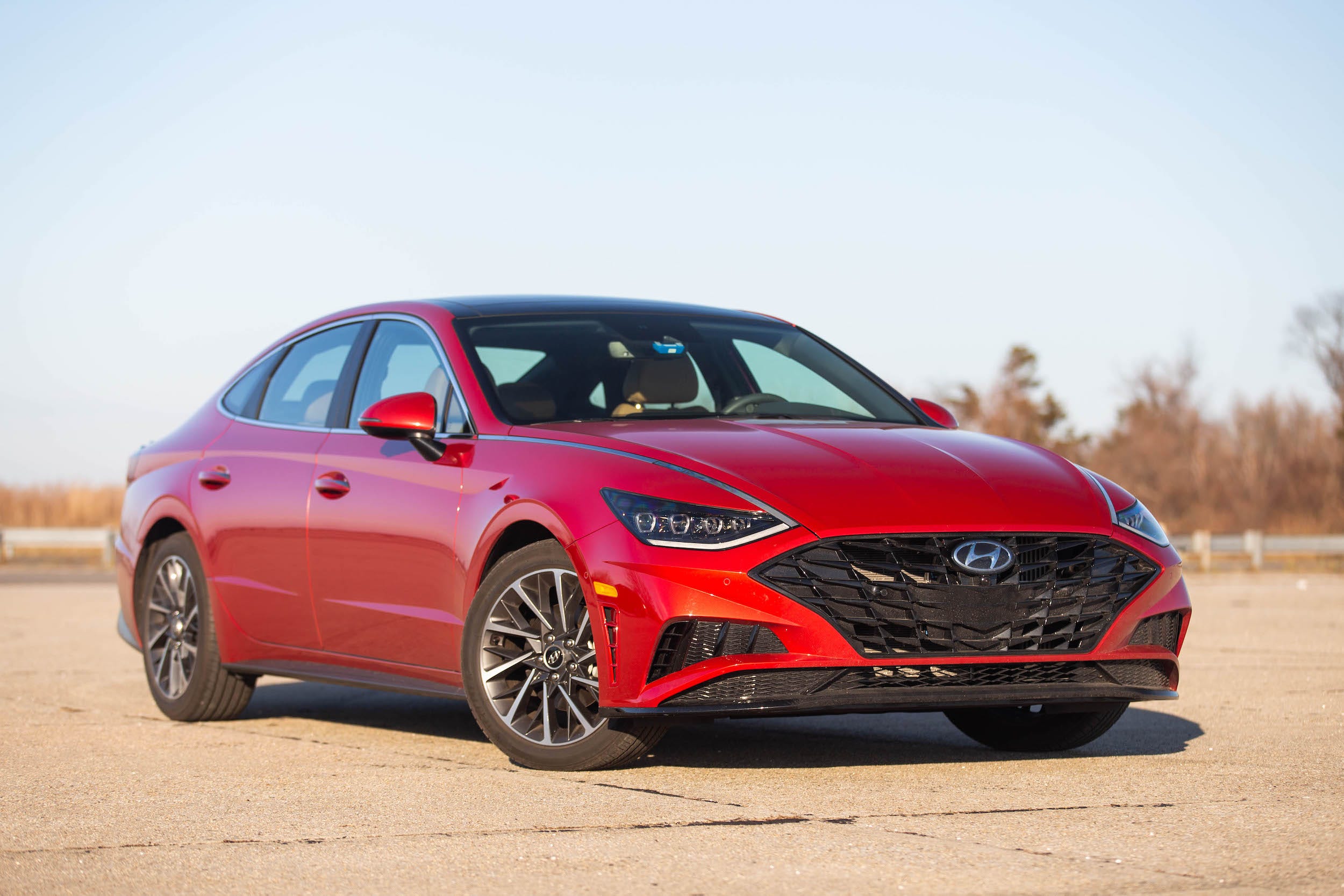
Kristen Lee
- The new Hyundai Sonata has a fresh new design that looks great.
- It’s a midsize sedan that competes with the Toyota Camry and Honda Accord.
- Base MSRP for the 2021 model is $23,700. After minimal options, my top-trim 2020 loaner cost $34,590.
- Visit Business Insider’s homepage for more stories.
As a fan of sedans, it’s hard not to feel left out these days.
Being the big sellers that they are, it seems like crossovers, trucks, and SUVs are the ones getting all the automaker love (see also: money). New technology and new designs are all being levied at the big cars. Storied SUV nameplates like the Blazer, Bronco, Defender, and Grand Wagoneer are all being brought back.
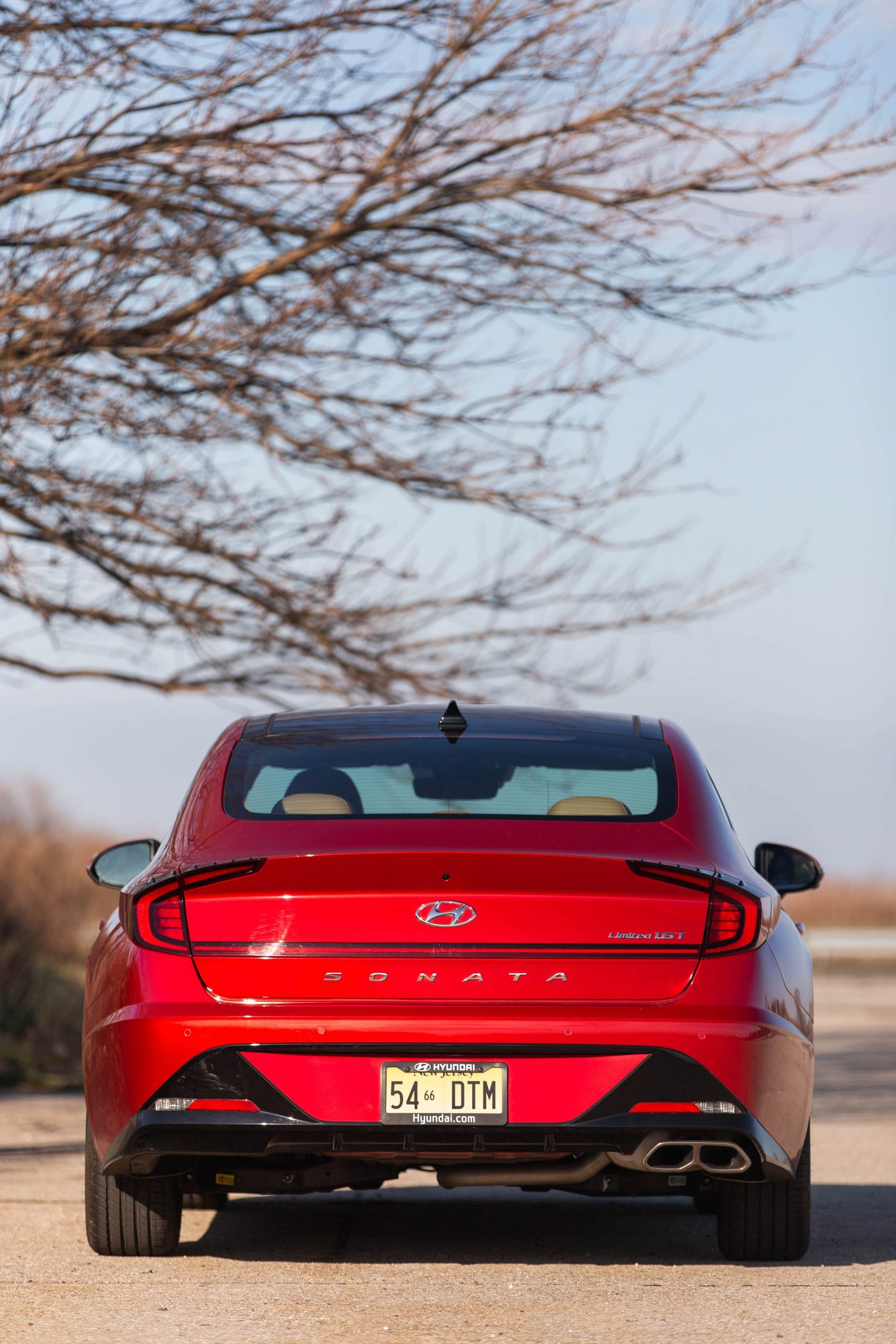
Kristen Lee
At the same time, Ford canceled its small cars. General Motors made similar moves.
But what about buyers who still find sense in regular sedans? Not executive limos dressed as sedans, mind you. Practical sedans, ones that don’t demand massive sums of money or a neighboring racetrack just so they can stretch their legs.
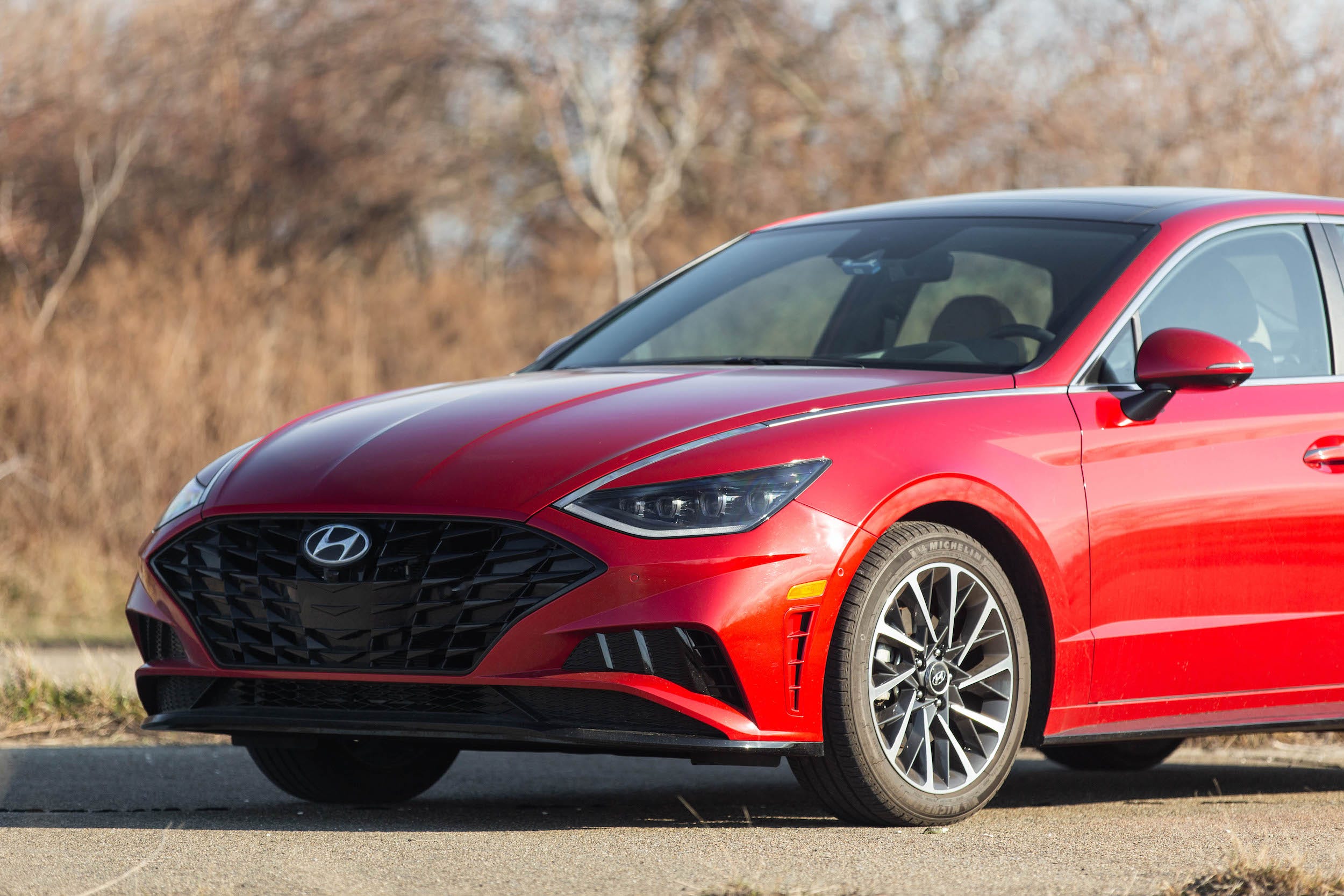
Kristen Lee
Fear not. The 2020 Hyundai Sonata has you covered.
The 2020 Sonata: Koi fish, anyone?
The eighth and current generation of the Hyundai Sonata made its US debut at the 2019 New York International Auto Show and immediately stole the show. Styling-wise, it was a radical departure from the outgoing generation, which was handsome enough, if not a little bland.
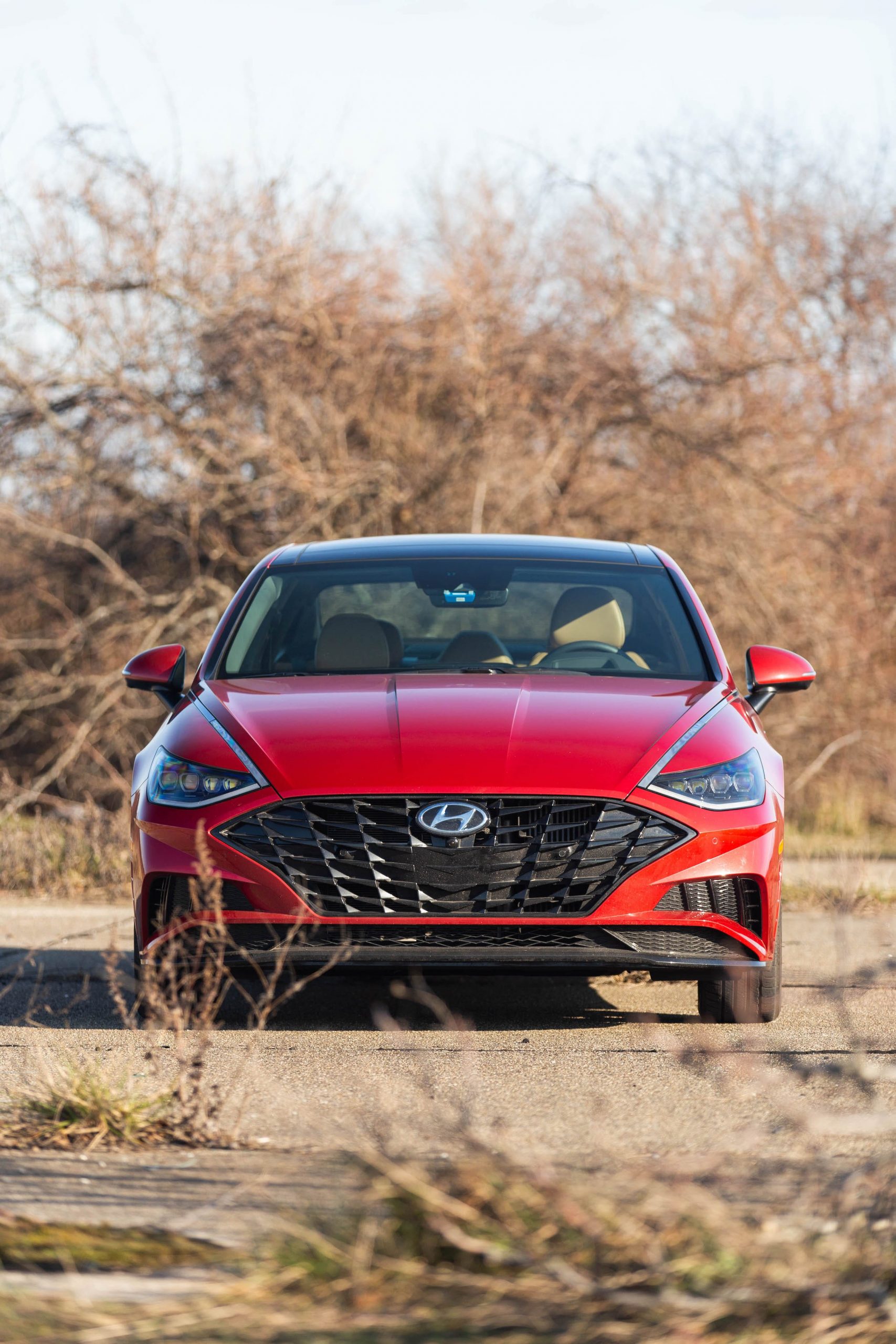
Kristen Lee
Sleek and with a wide, down-turned grille, some said the car looked similar to a koi fish. Regardless of your choice of aquatic wildlife, however, it's undeniable that the Sonata now looks far more expensive than it actually is, giving sedans the fighting chance they need to survive in the era of crossovers and SUVs.
While it's categorized as "midsize" on the broader market, the Sonata is the largest sedan Hyundai currently makes. It's also available as a hybrid and the sporty N Line version.
Details and safety ratings: A Top Safety Pick
The 2020 non-hybrid Sonata comes with two engine options, while the Sonata Hybrid has a 2.0-liter engine with a claimed 150 horsepower and 139 pound-feet of torque and a six-speed automatic transmission.
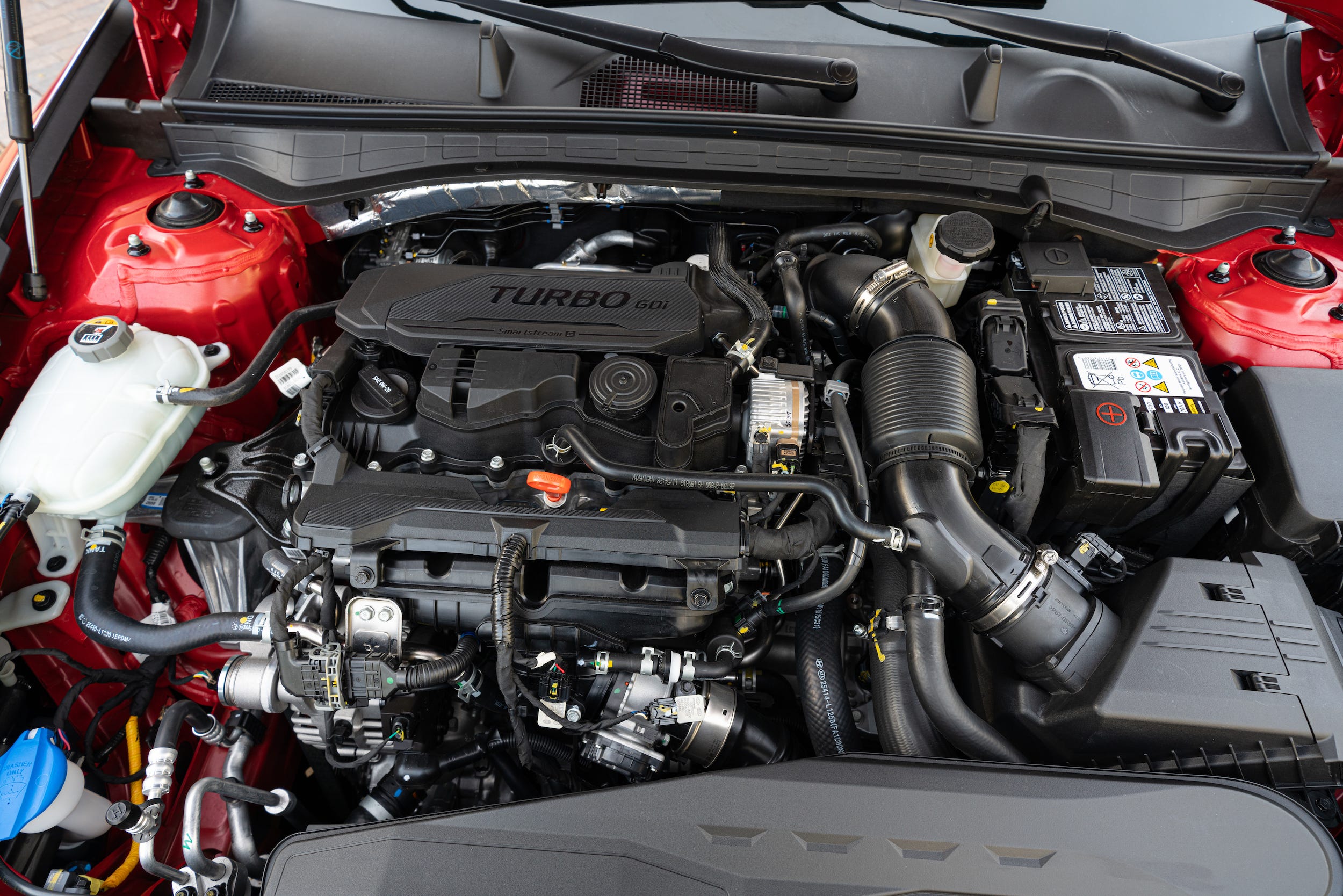
Hyundai
The first non-hybrid engine option is a 1.6-liter, turbocharged four-cylinder that produces a claimed 180 horsepower and 195 pound-feet of torque. When equipped with the 1.6-liter engine, the Environmental Protection Agency estimates the Sonata to return an impressive 27 mpg in the city, 36 mpg on the highway, and 31 mpg combined. My loaner came with this engine in the Limited trim.
The second engine option is a 2.5-liter four-cylinder that produces a claimed 191 horsepower and 181 pound-feet of torque. Both engines use an eight-speed automatic transmission.
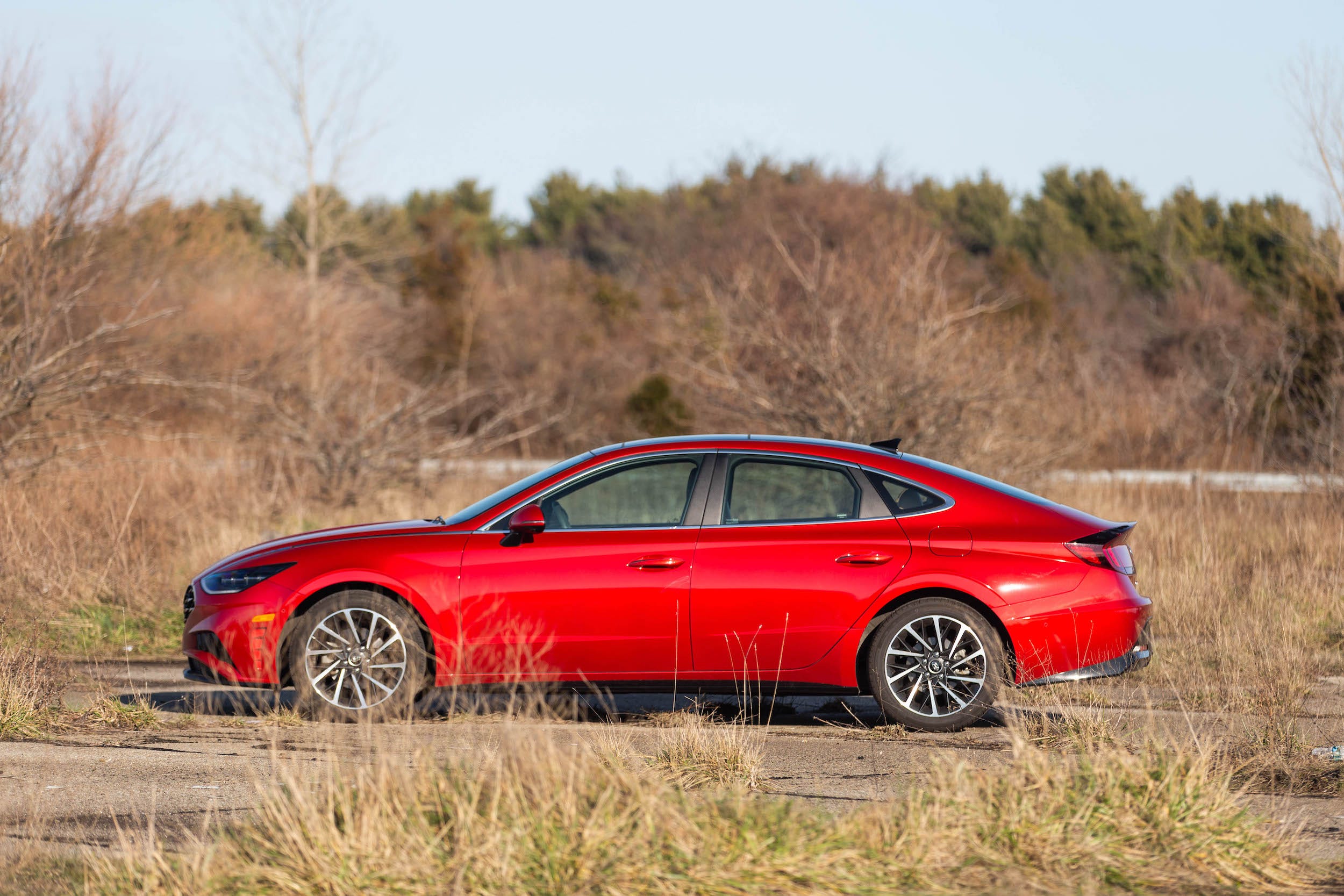
Kristen Lee
In the Limited trim, the Sonata weighs 3,336 pounds. It's 16 feet long, six feet wide, and stands 4.7 feet tall. Its trunk has a cargo capacity of 16.3 cubic feet, which is greater than the Toyota Camry's 15.1 cubic feet and slightly less than the Honda Accord's 16.7 cubic feet.
The 2020 Sonata earned five stars on the National Highway Traffic Safety Administration's overall safety rating, with four out of five stars on frontal crash ratings, five stars on side crash ratings, and five stars on rollover ratings.
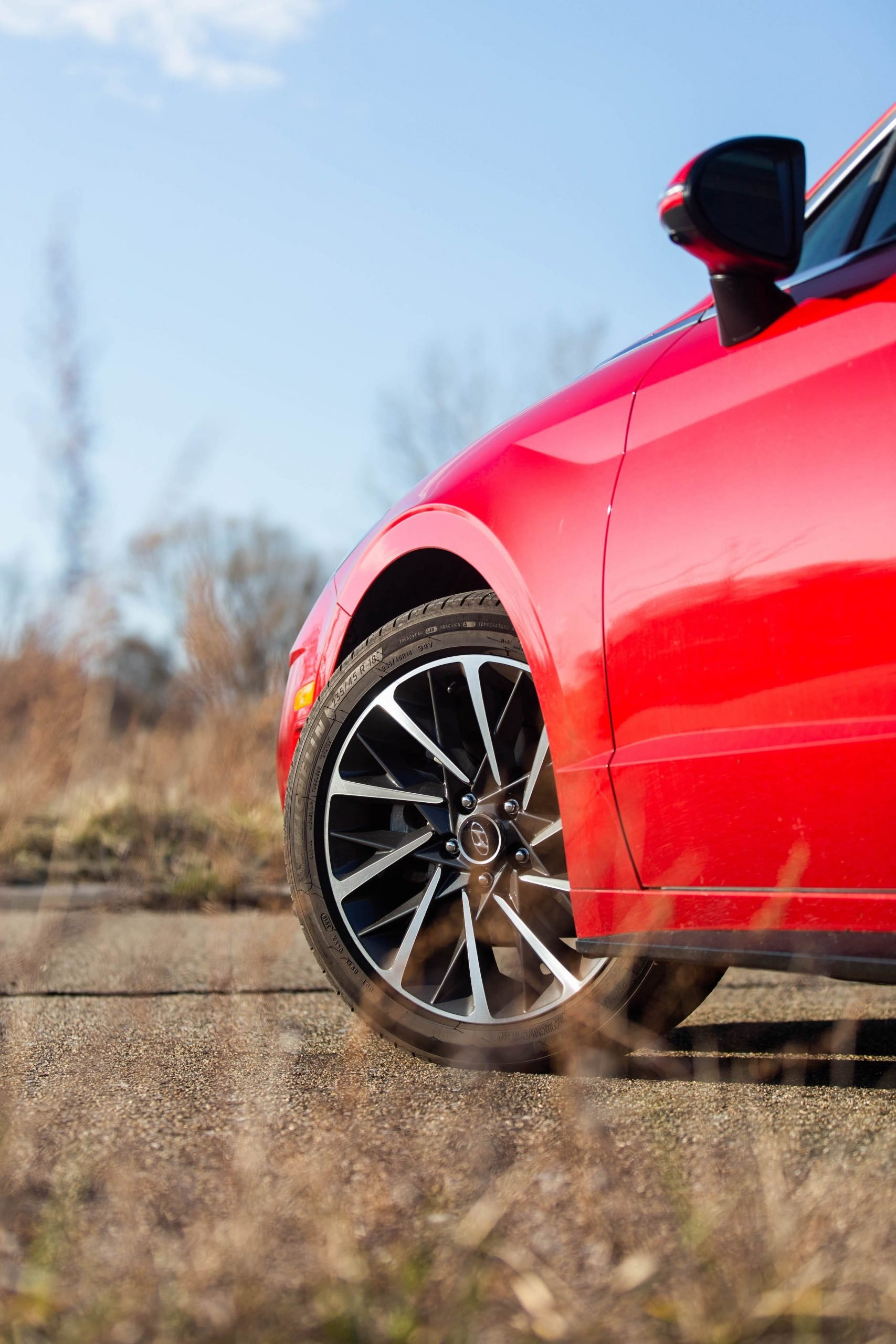
Kristen Lee
The Sonata also earned a Top Safety Pick award from the Insurance Institute for Highway Safety, and the agency only took issue with its headlight quality that varied by trim and option. All of its crash ratings got top markings.
What stands out: Magic trunk
The new Sonata is quite a looker. Its swoopy body reminds me of one of the Mercedes-Benz CLS-Class sedans from the mid-2000s. The front grille is wide but it suits the car's low-slung, horizontal-focused fascia just fine. Attractive, accentuating silver trim drapes across the hood, window line, and door handles like trailing tinsel.
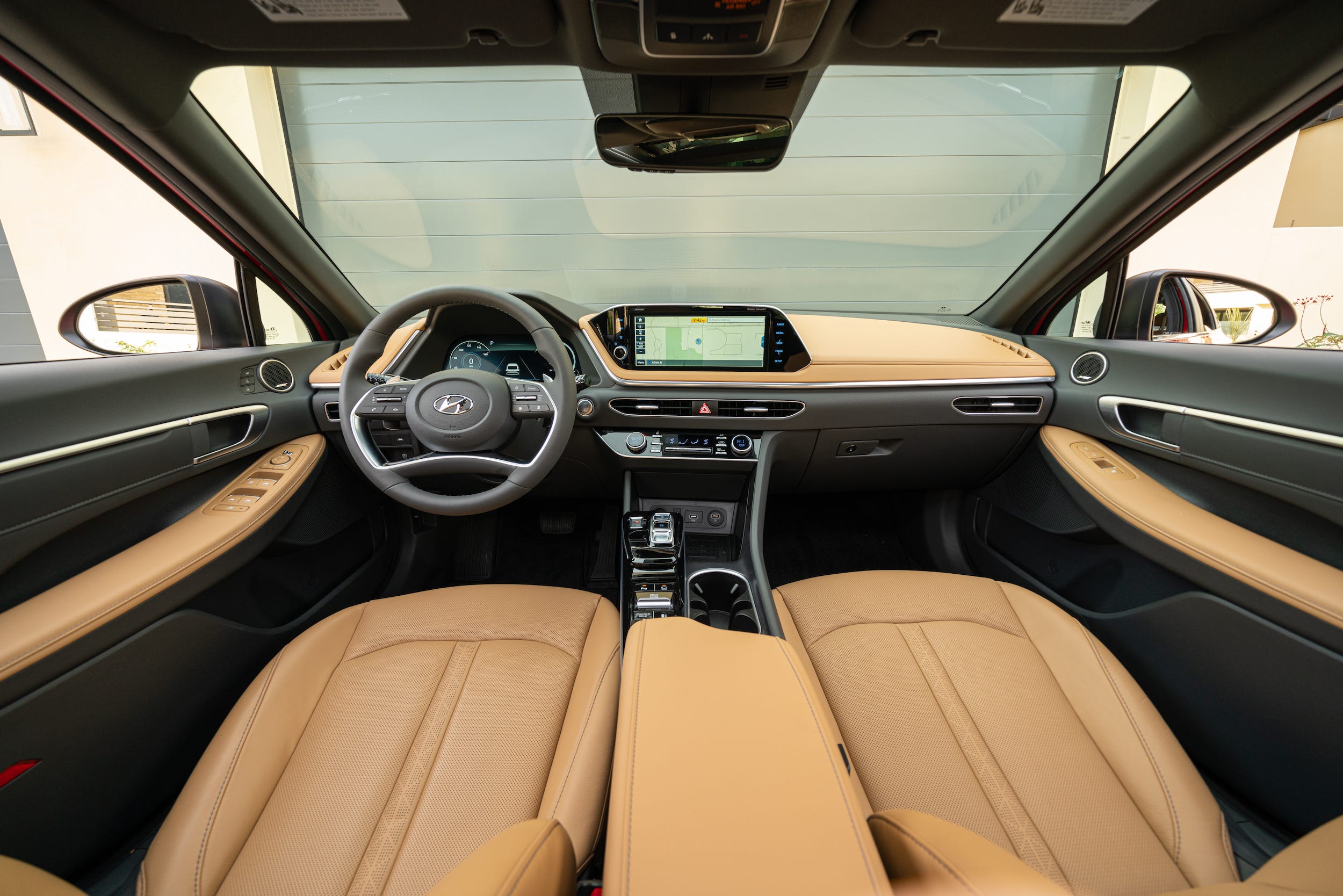
Hyundai
Inside, things get decidedly more utilitarian. Unable to escape the tacked-on-as-an-afterthought look, the central infotainment screen is at least large and clear to read. There are still physical dials and buttons for the volume and climate controls.
All around, the seats are comfortable and supportive and the rear seats offer good legroom. From the driver's seat, outward visibility is great, even when looking over your shoulder. But the Sonata's most impressive trick by far? The massive trunk.
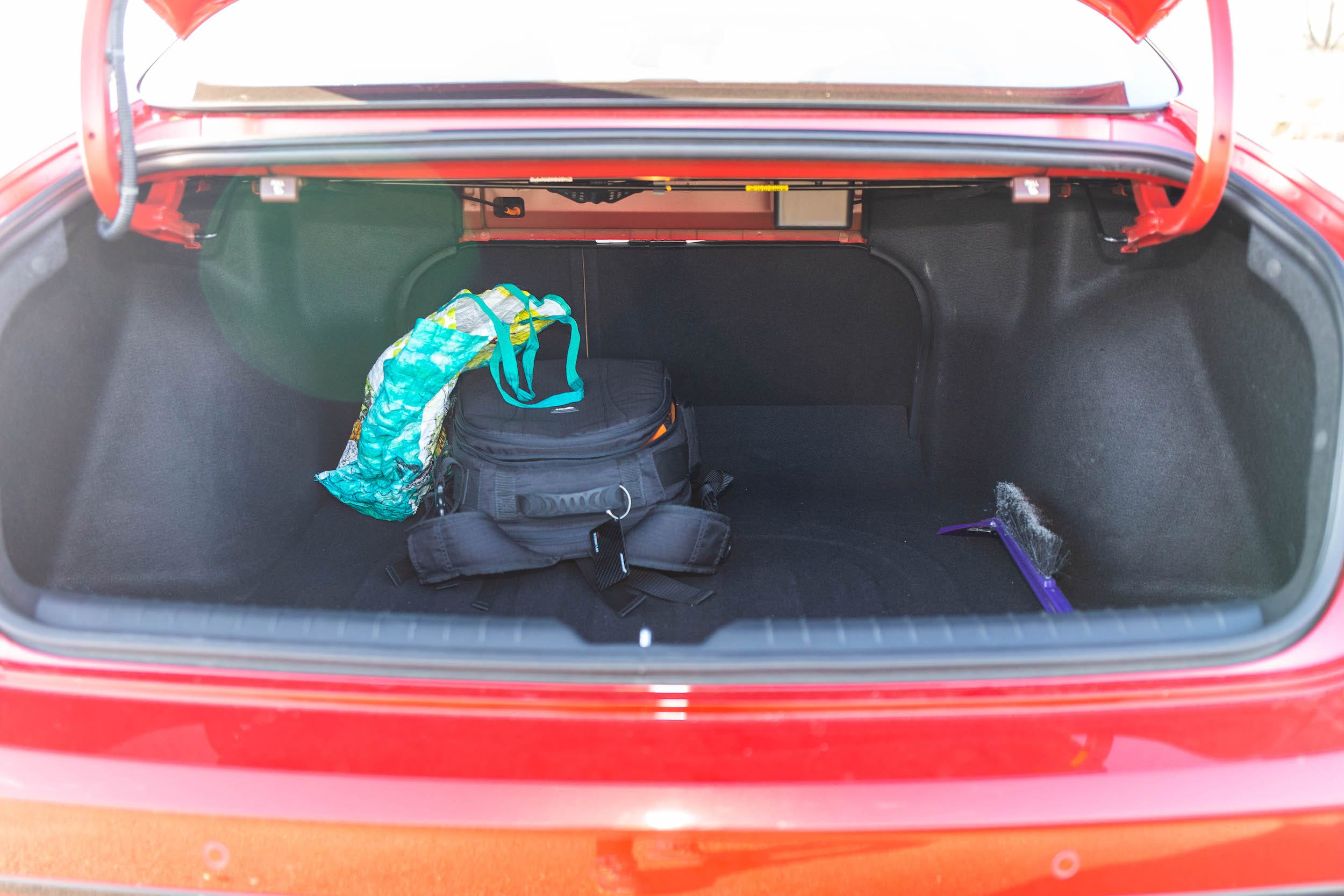
Kristen Lee
It's not incredibly wide, but it's deep. It easily swallowed up the pile of luggage and cargo spilling across the front hallway of my house. We folded down the rear seats for extra room but found we didn't need it. This is the best kind of problem to have.
I felt like I was driving the vehicular version of the house House of Leaves - a car that's bigger on the inside than the outside.
What falls short: Needs a gear selector lever
I appreciate the Sonata's dedication to style, but I still think it could have used a gear lever. The gear selector buttons are a clean design and learning to use them happened quickly enough, yet I still found myself grasping for that non-existent lever. What was so wrong with gear selector levers that automakers are getting rid of them left and right?
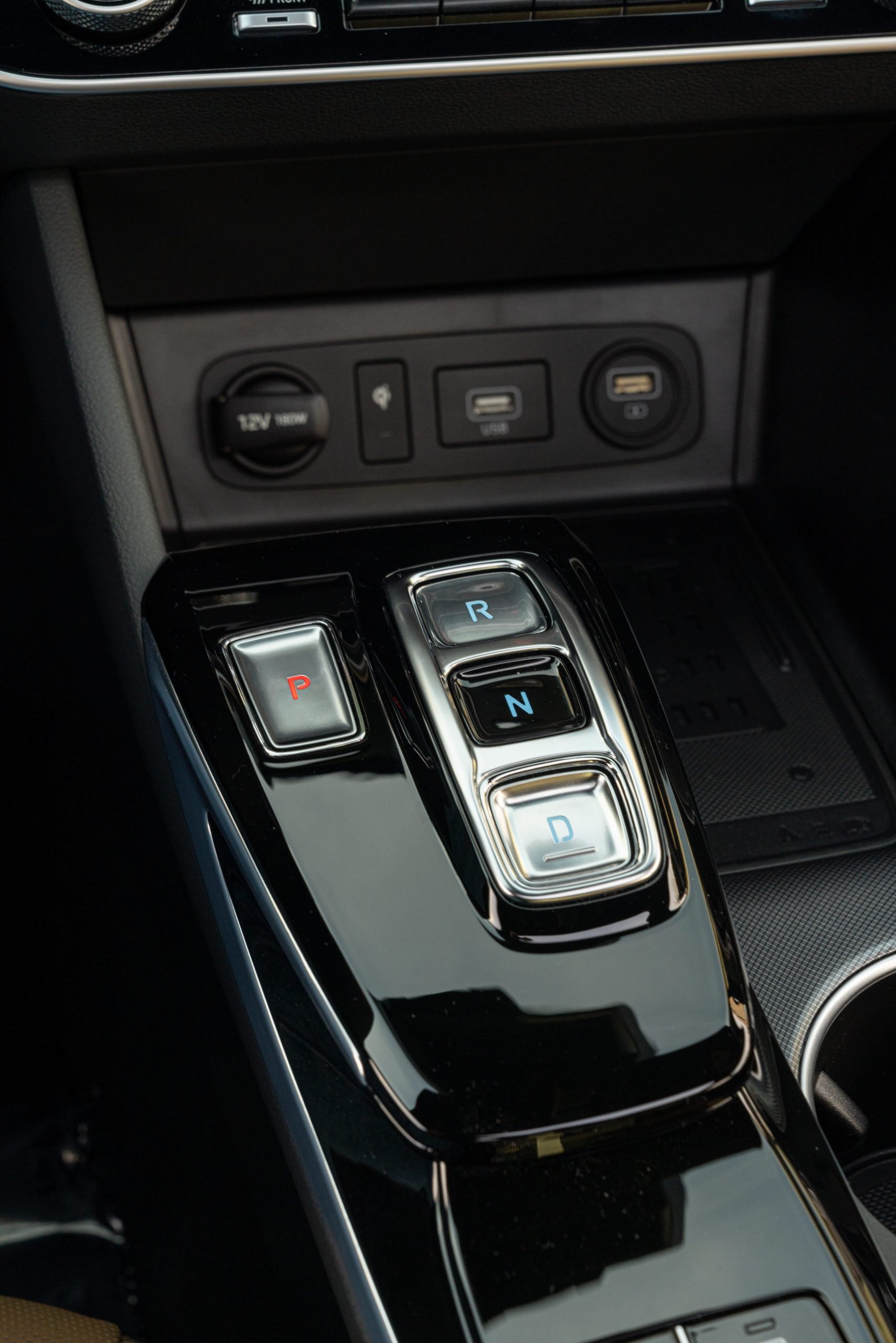
Hyundai
The Sonata does a spectacular job of upscaling its reasonable price tag everywhere else, but with regard to its noise, vibration, and harshness, it shows its hand a bit. In cars such as the Lincoln Aviator or Genesis G90, wind and tire noise are abstract concepts. You hear nothing.
In the Sonata, they are more corporeal. I could hear the wind rushing over the body on the highway and the constant whirring from the tires against the road.
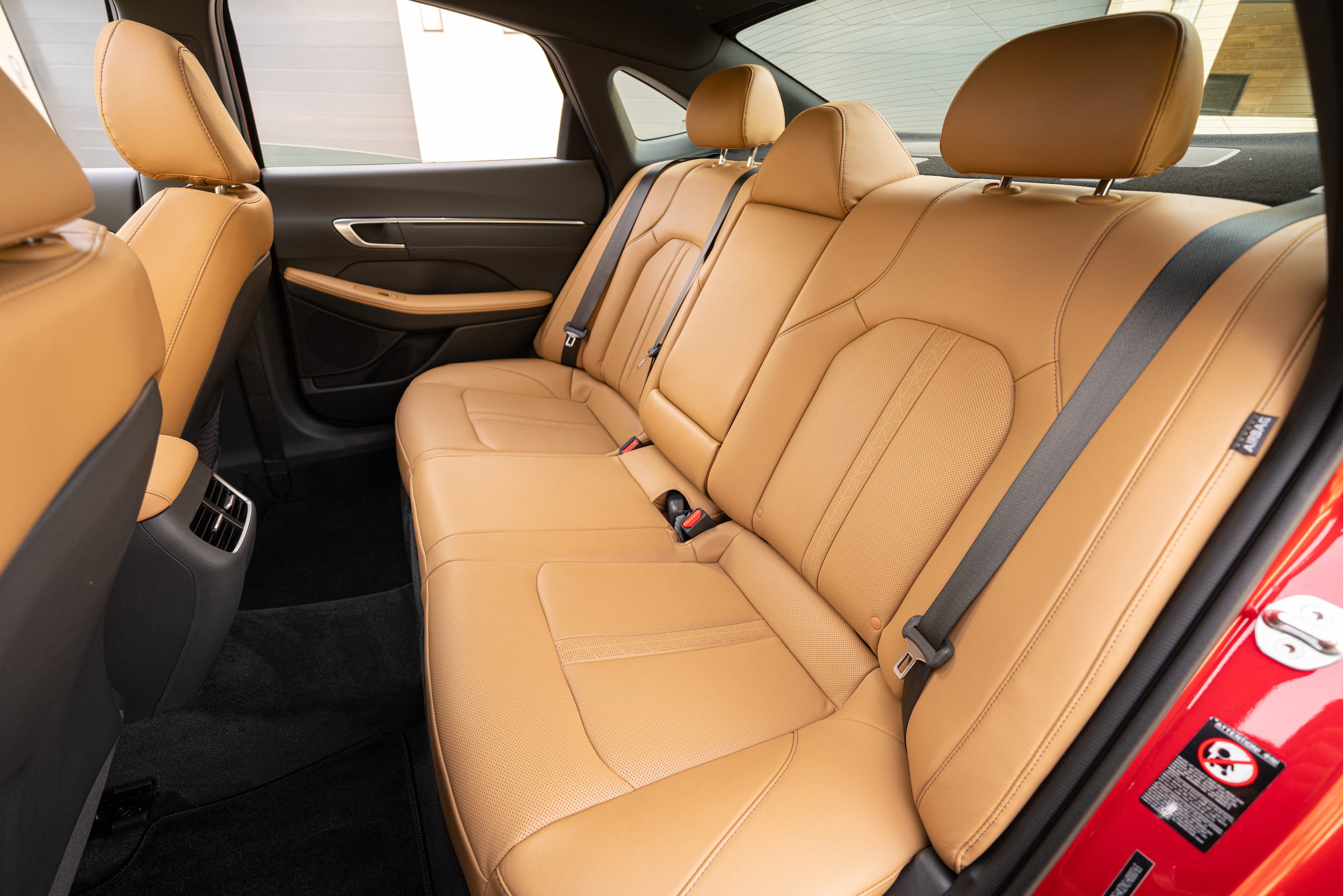
Hyundai
Road noise at speed is hardly a big drawback, though. It just means you have to speak slightly louder to be heard by rear passengers. I'd wager most buyers wouldn't even notice it.
Against competitors: Tough competition from Toyota and Honda
The base 2021 Sonata starts at a very reasonable $23,700 MSRP. And despite it being the cheapest Sonata you can buy, it comes with a lot of great perks as standard: the 2.5-liter engine, forward collision-avoidance assist with pedestrian detection, driver attention warning, lane-follow assist, and an eight-inch touchscreen.
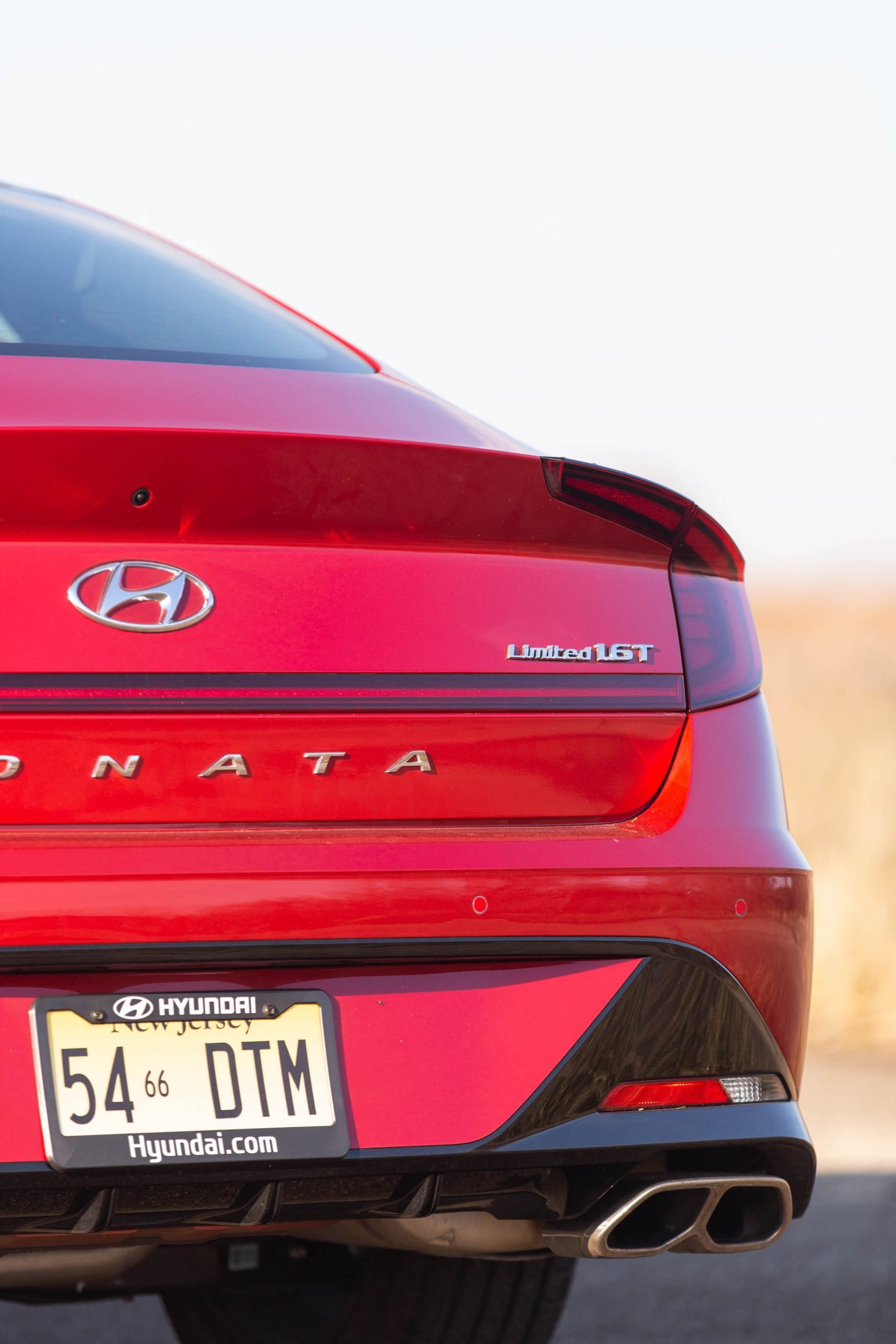
Kristen Lee
The 2021 top-tier Limited Trim, which offers a 10.25-inch screen, the 1.6-liter turbocharged engine, remote smart parking assist, surround view monitor, and sportier styling as standard features. Again, as far as standard features come, the Sonata Limited comes pretty fully loaded; you aren't left wanting for more options.
The 2020 Sonata Limited, which is what I had, starts at $33,500 MSRP while its 2021 counterpart starts at $33,950. After carpeted floor mats ($135) and the destination fee ($955), the total price for my loaner came to $34,590 MSRP.
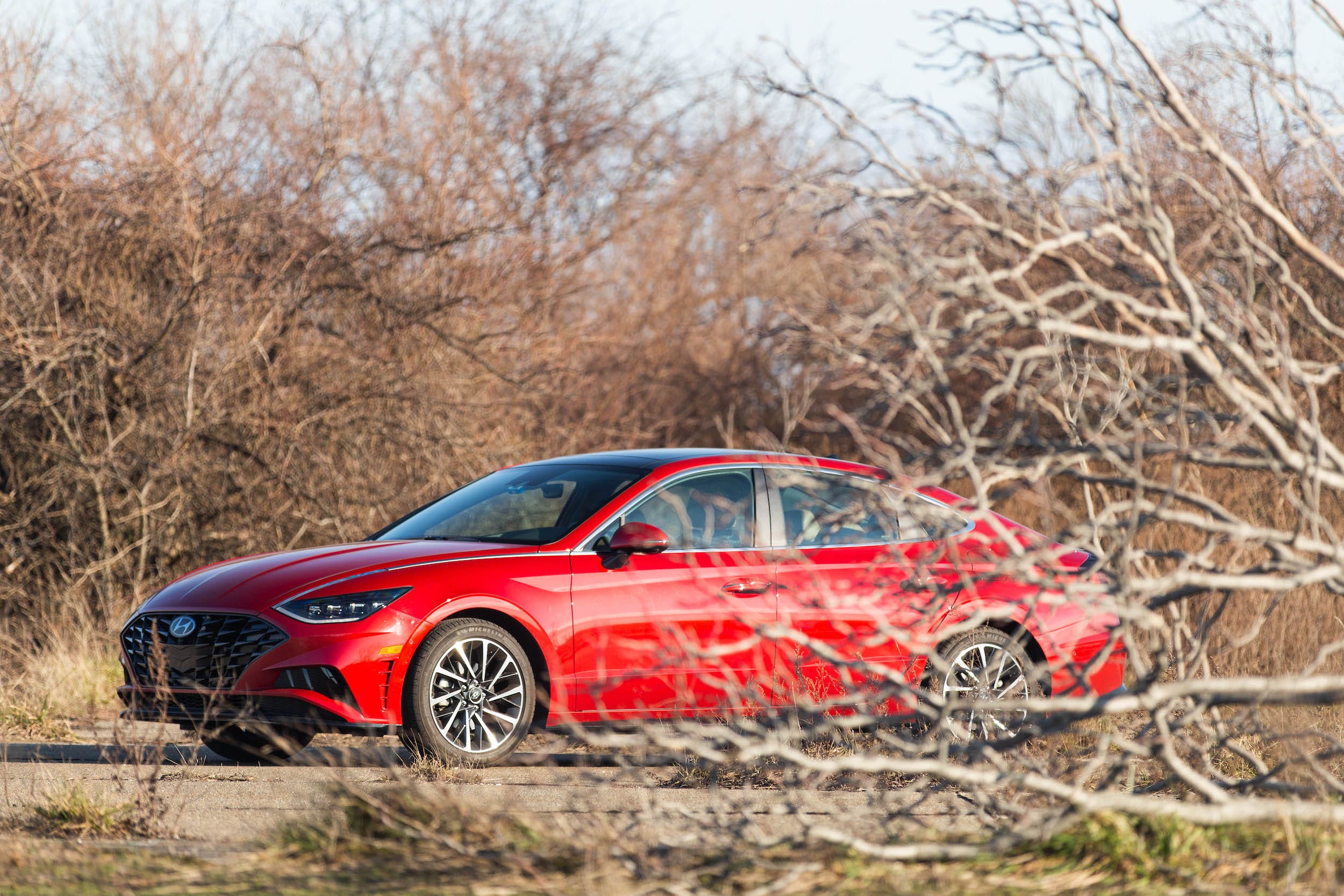
Kristen Lee
But being a midsize sedan, the Sonata finds itself facing some very tough competition - chief among them the Accord and Camry stalwarts. The two are basically the golden standard of the segment.
The Honda Accord and the Toyota Camry start at $24,970. Other competitors include the Mazda 6 ($24,100), Nissan Altima ($24,300), Subaru Legacy ($22,895), Kia K5 ($23,590), and Volkswagen Passat ($23,995).
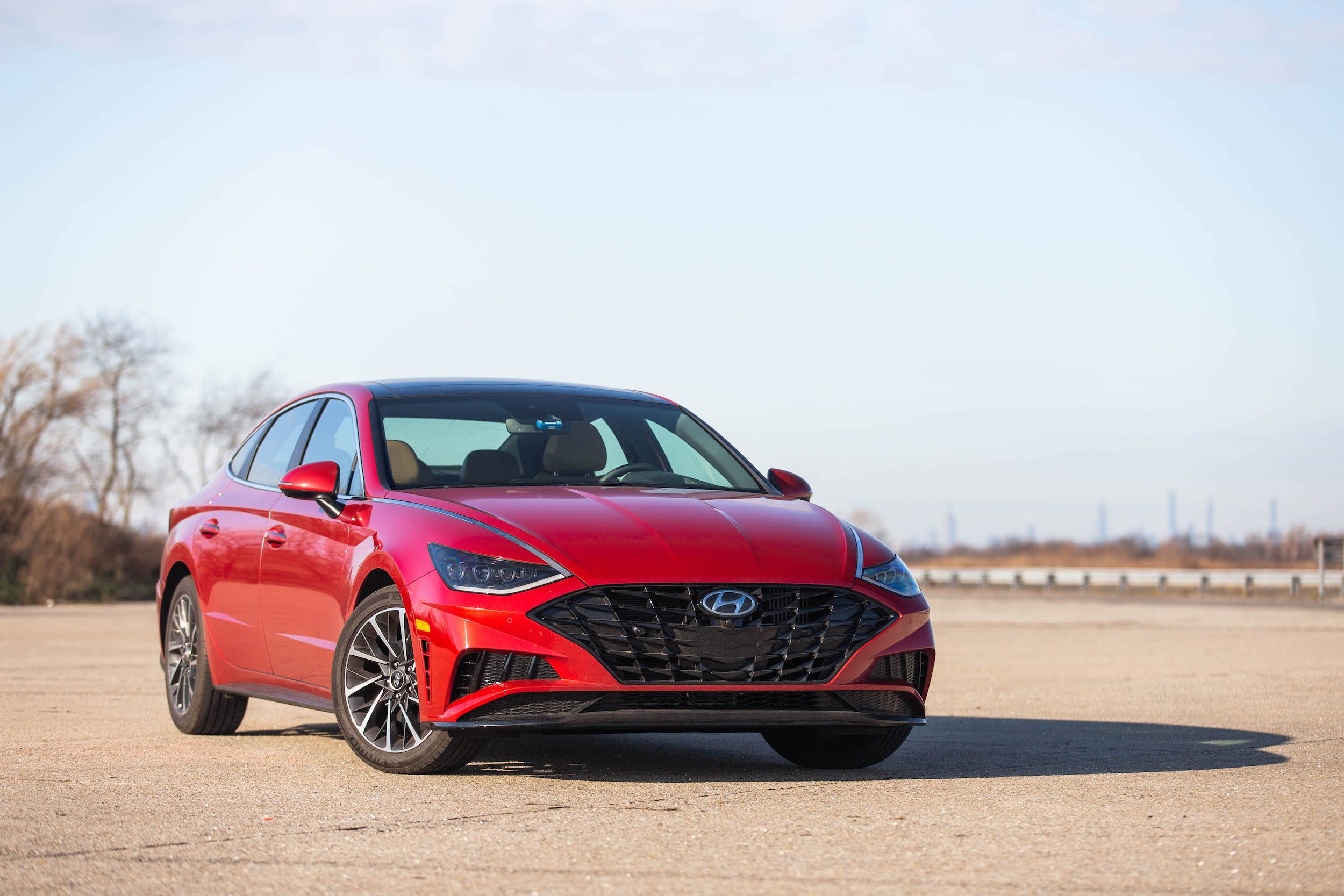
Kristen Lee
Enthusiasts at least will rejoice for the sportier Sonata N Line, a 290-horsepower, dual-clutch version of the humble sedan. Just know that a 300-horsepower Toyota Camry also exists.
Based on looks alone, I'd likely lean toward the Sonata just because it's something new and different, though whether or not it can go toe-to-toe with the famed Toyota reliability still remains to be seen.
Our impressions: A midsize triumph
There's a special feeling that comes with driving something comely - but Hyundai takes it a step further. The Sonata is rolling proof that attractive cars don't need to be relegated to $100,000-plus price tags. Furthermore, you don't feel like you're buying an afterthought from a brand with SUV priorities.
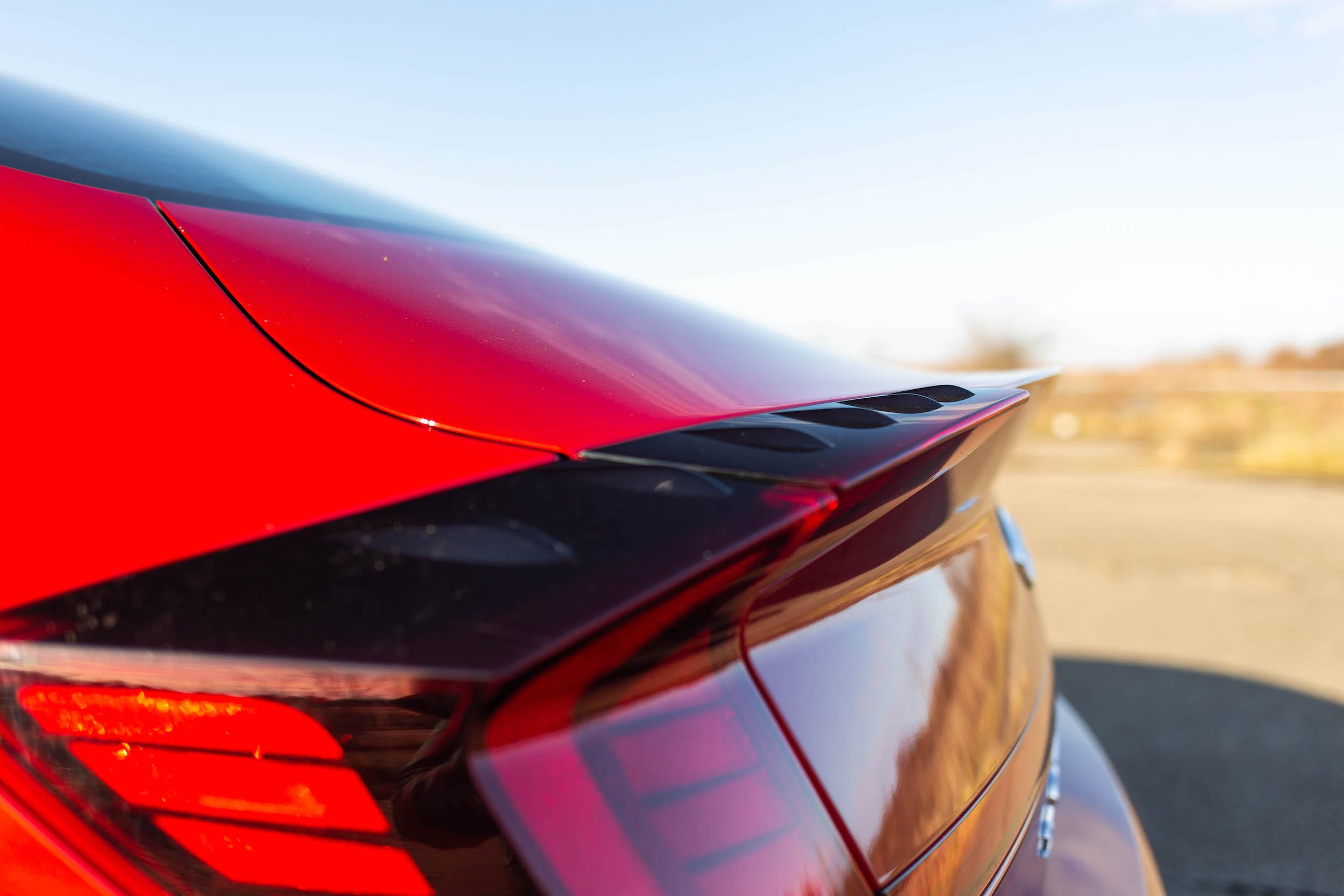
Kristen Lee
Based on my own anecdotal experience, I've started seeing a lot of the new Sonatas on public roads since they went on sale. Of course I'm going to notice them more because that's how bias works. Still, it's a good thing to witness and only reinforces my belief that if you package something nicely and slap on a reasonable price tag, people will buy it.
Not only is the Sonata striking, but it's also sensibly mid-sized and returns great fuel mileage. The available horsepower and torque move the car onto, around, and off of the highway with briskness and alacrity.
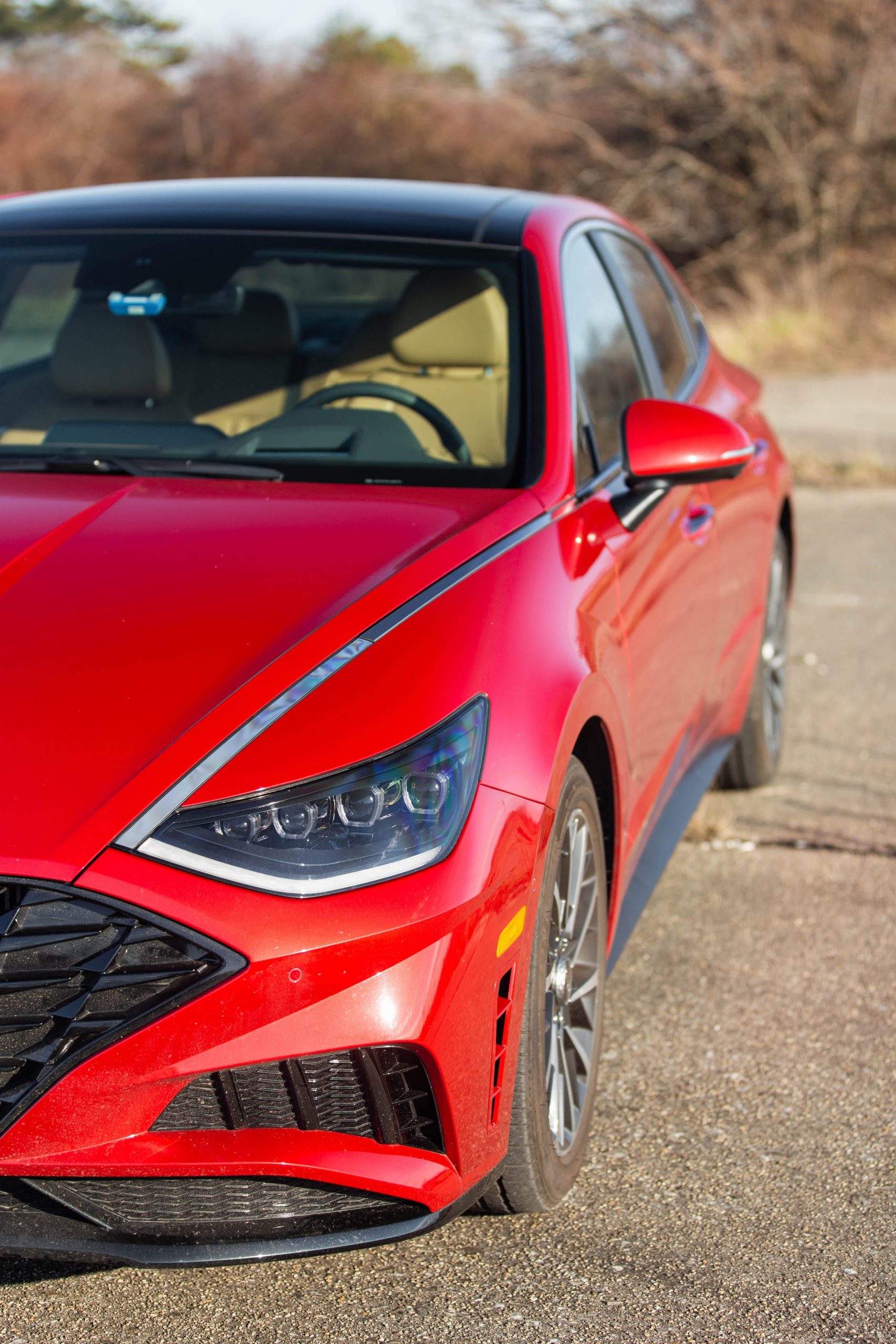
Kristen Lee
Around town, it's easily maneuverable and a breeze to park. Steering feedback is engaging. The trunk is cavernous, the rear seats accommodating. What more could you ask for, really?
The Sonata is a car that is great at being a car, perfect for those disinterested in taking up more space and resources than they have to. In this, it is a triumph.
♦♦♦
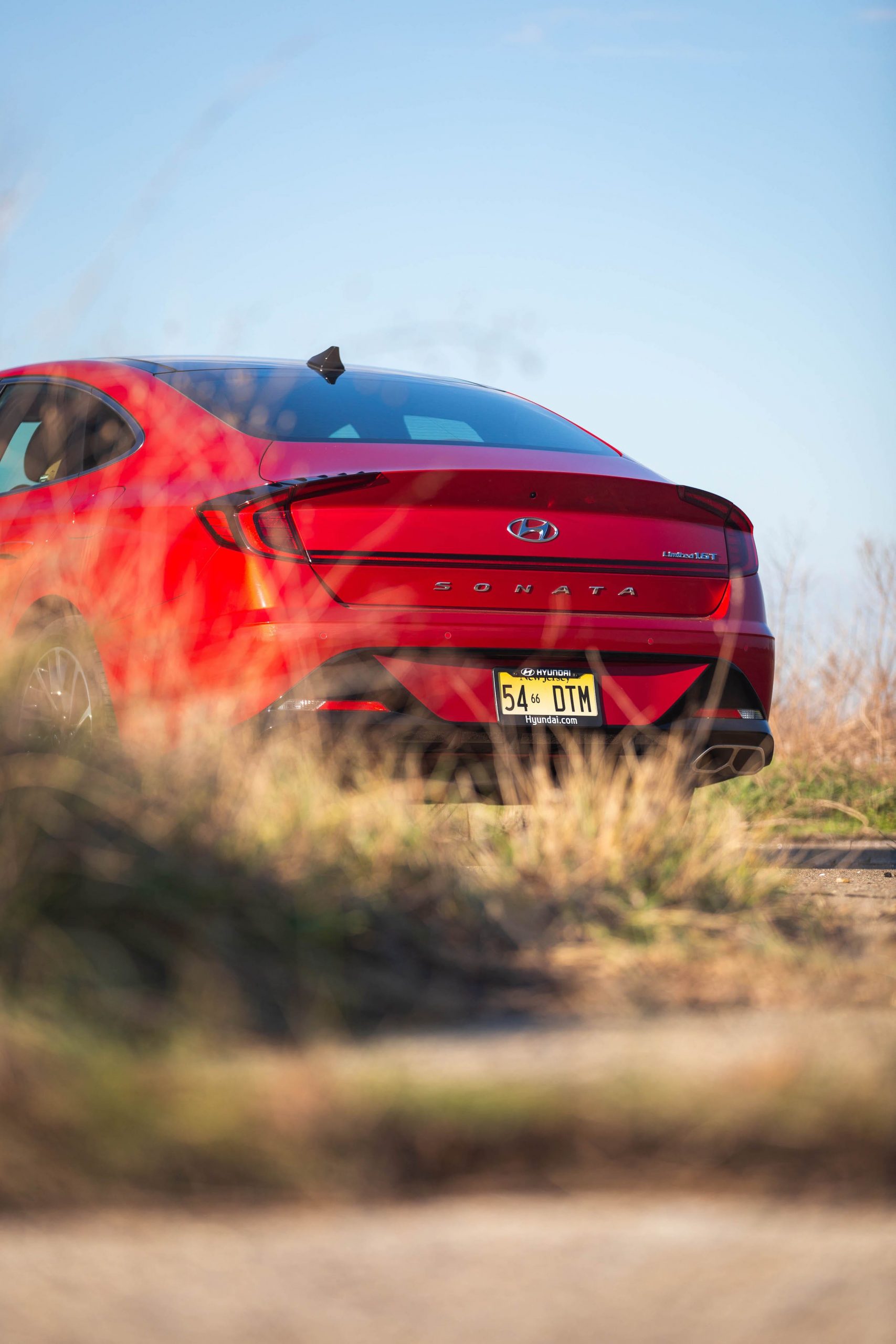
Kristen Lee
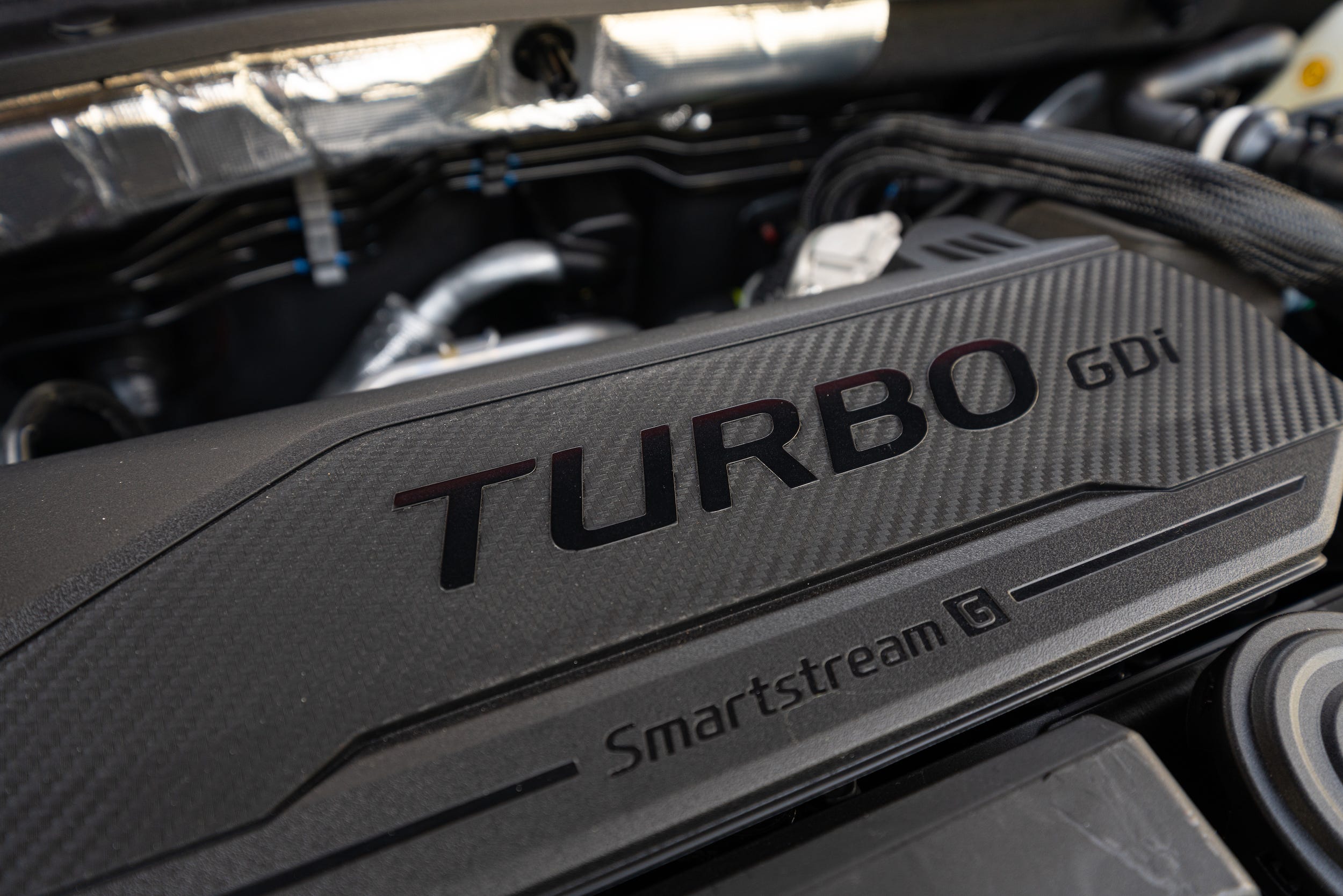
Hyundai
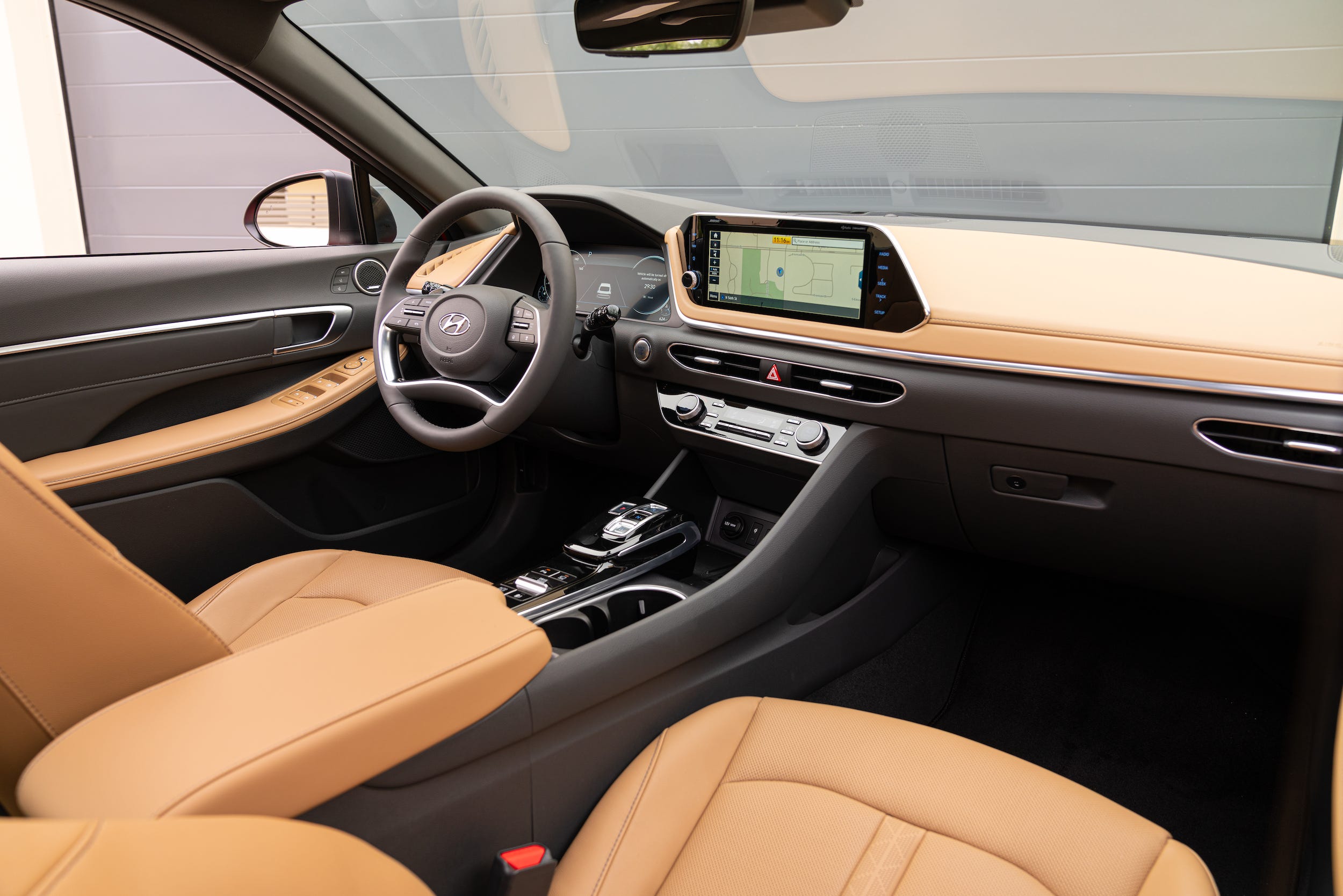
Hyundai
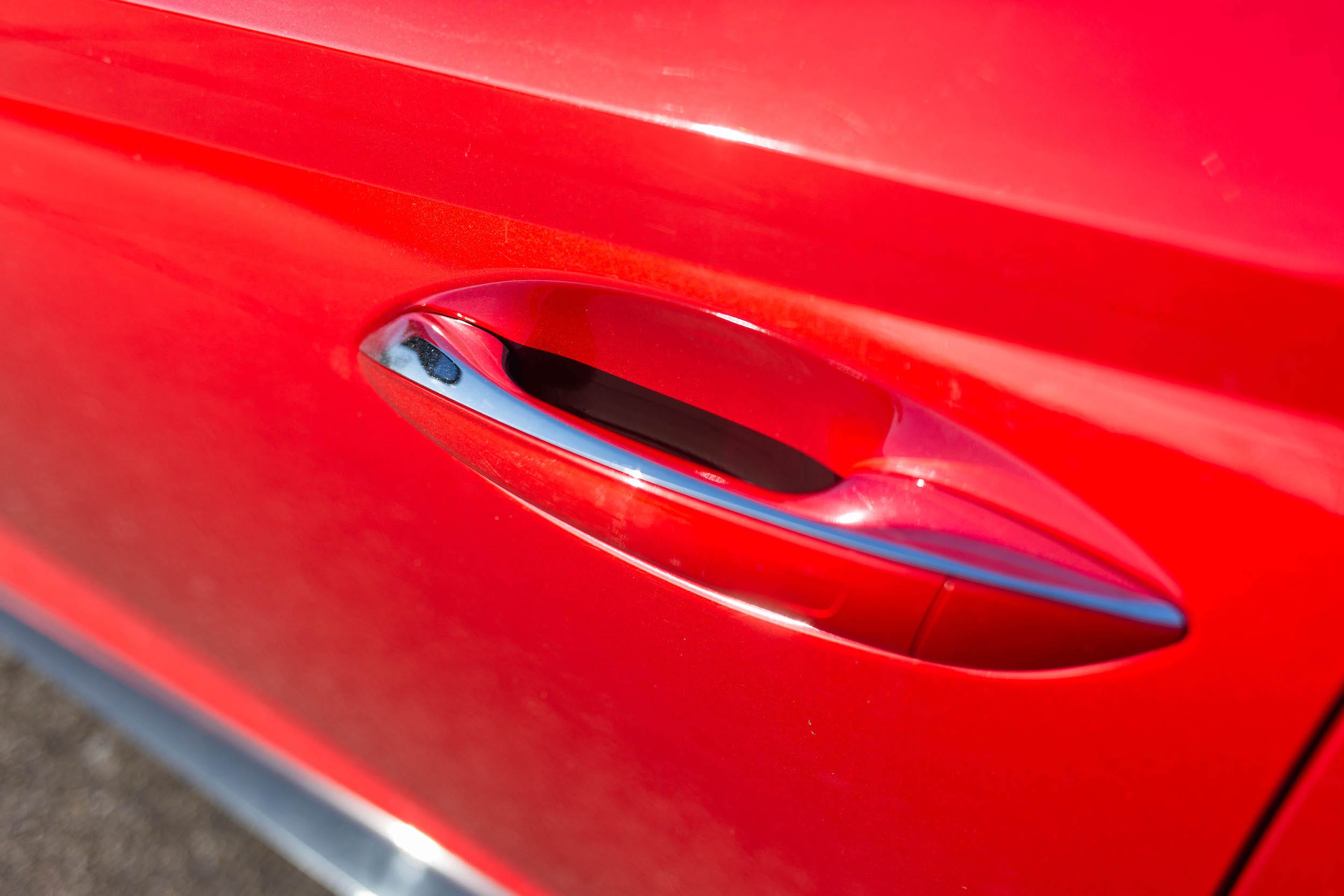
Kristen Lee
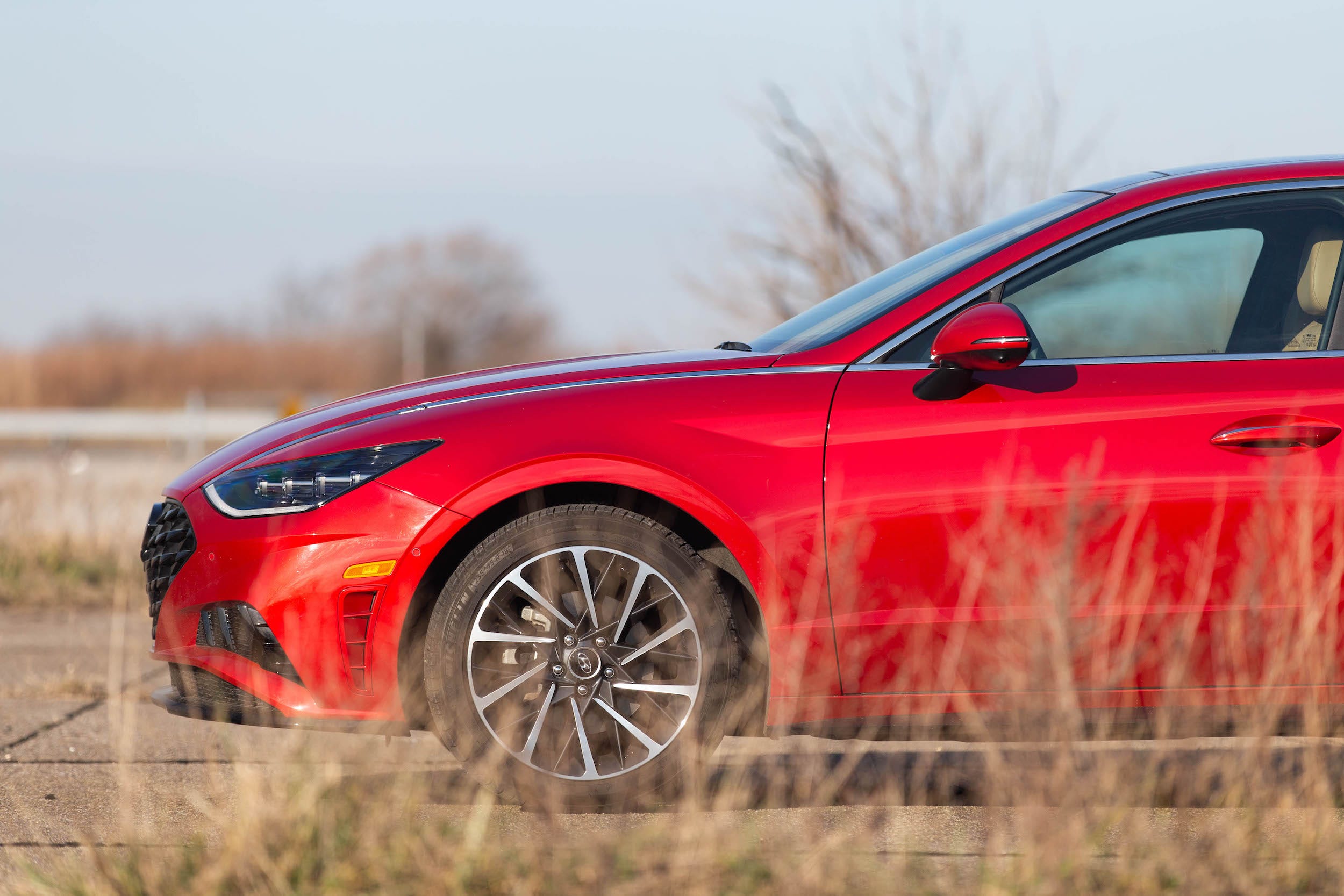
Kristen Lee

Kristen Lee
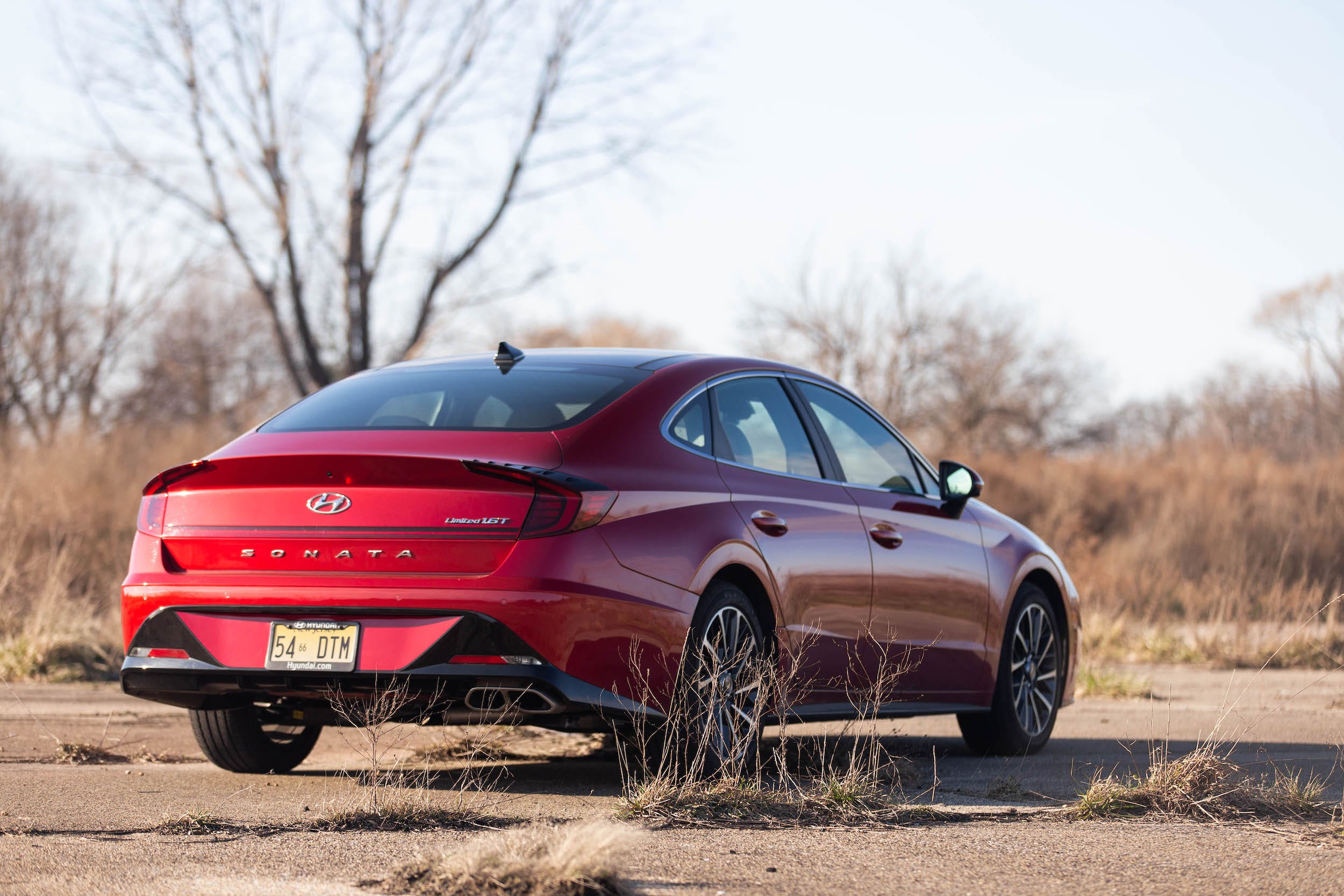
Kristen Lee
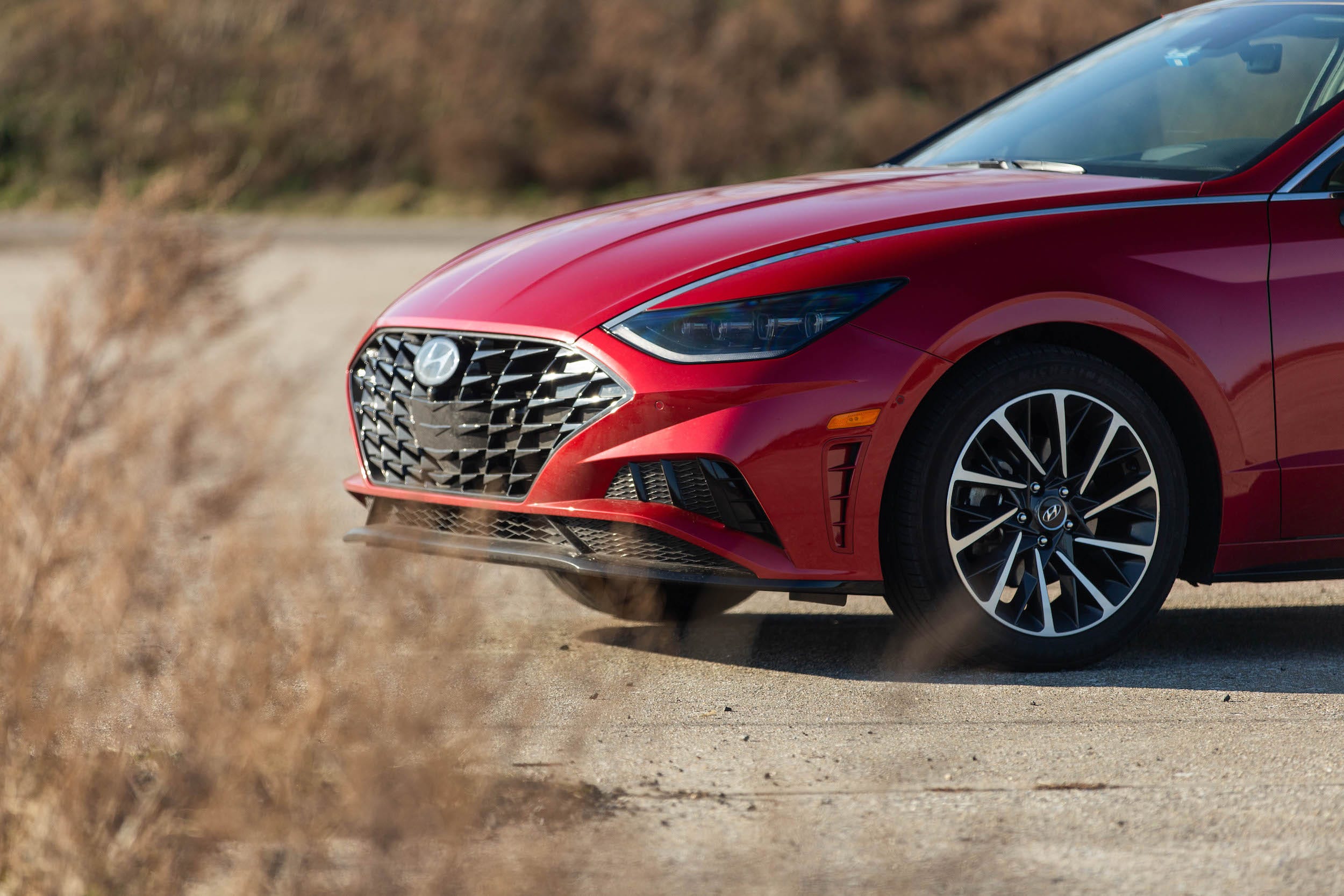
Kristen Lee
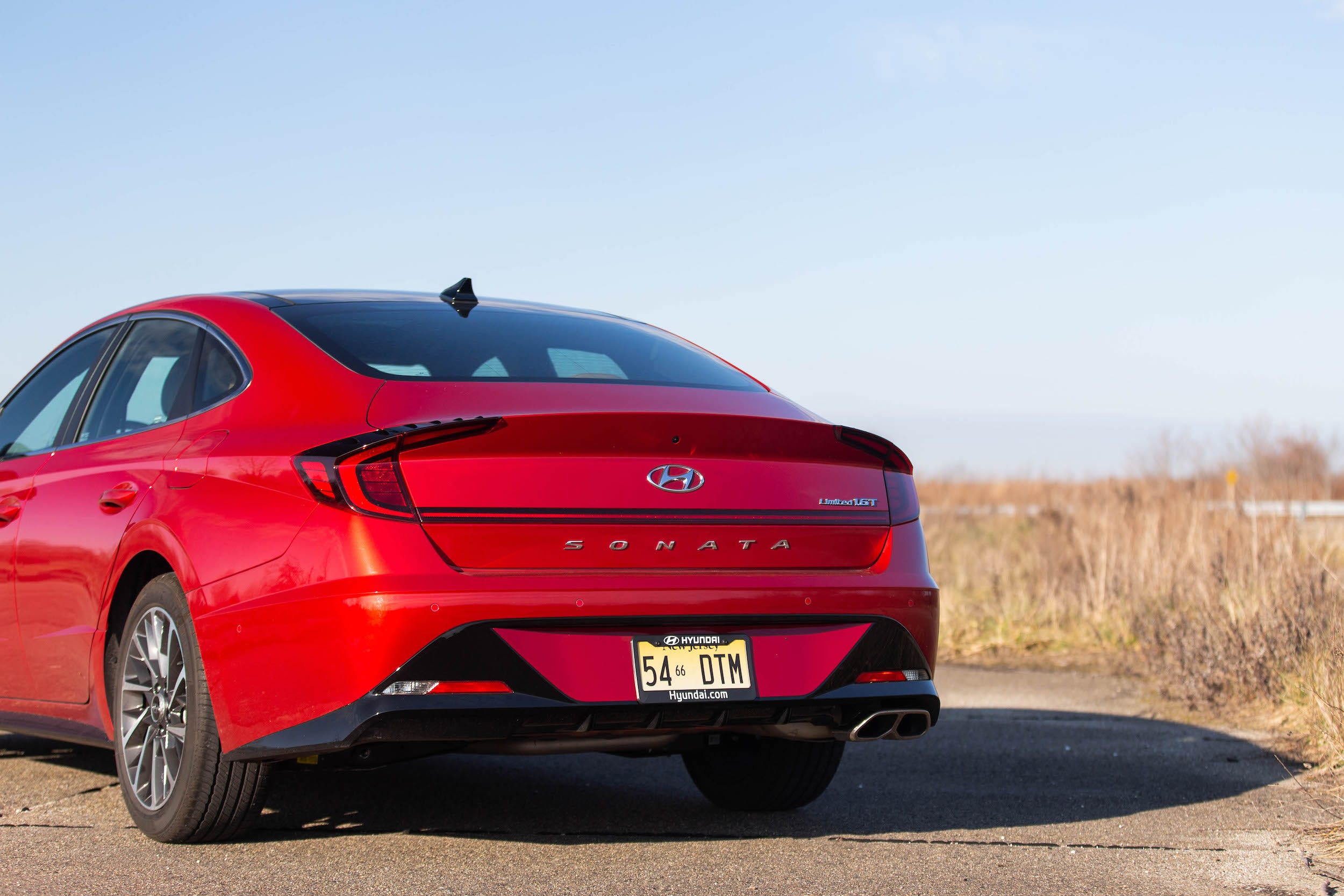
Kristen Lee
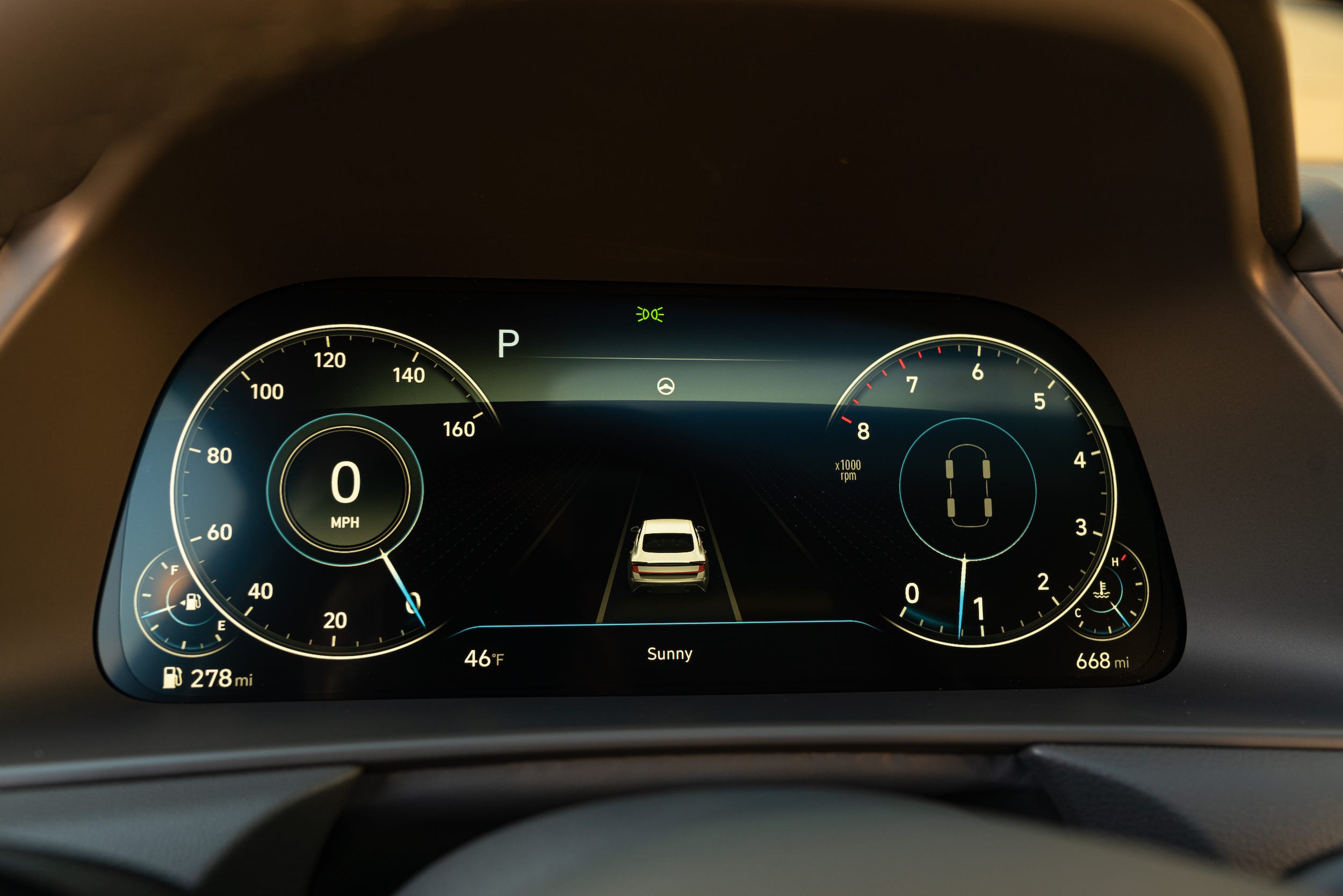
Hyundai
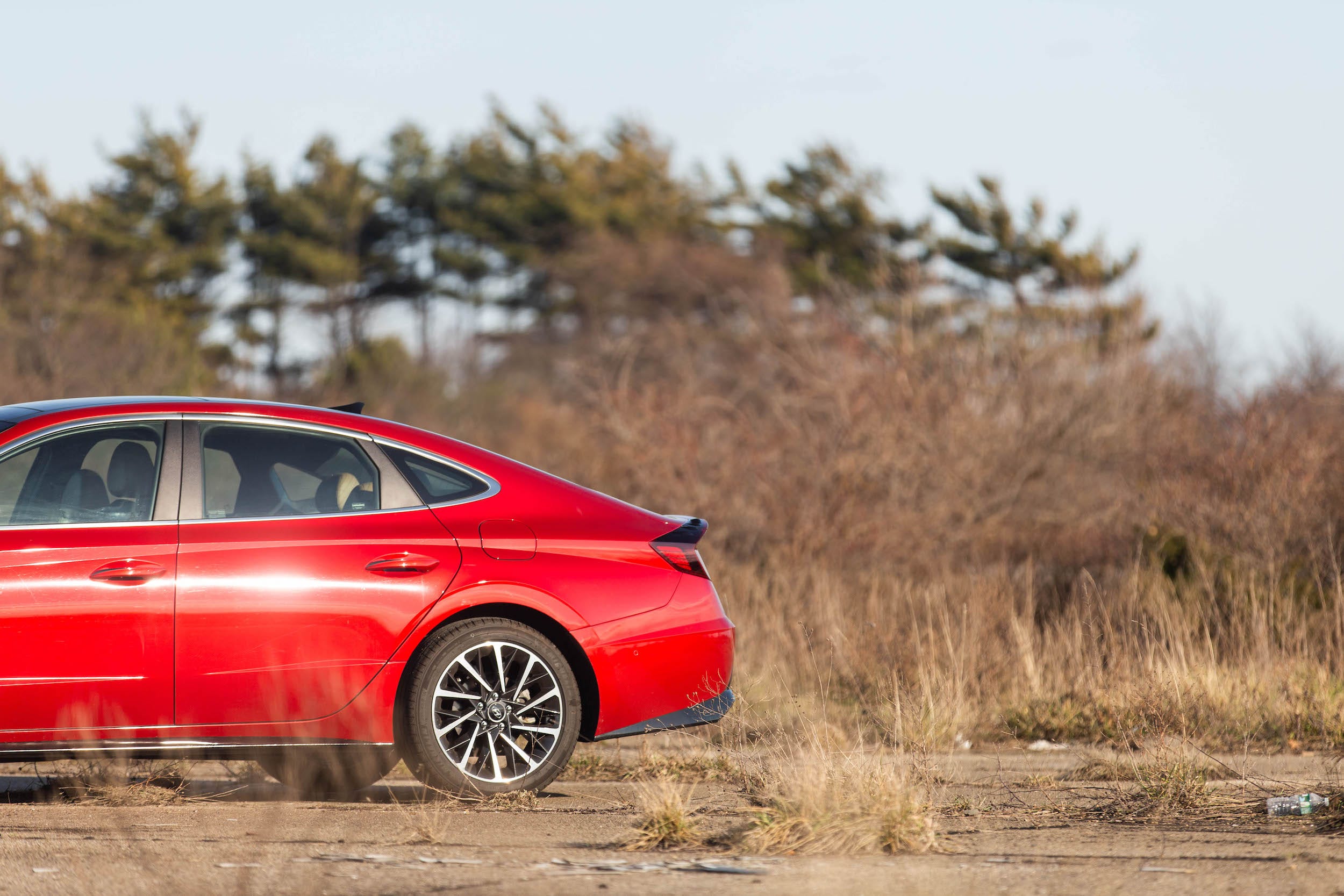
Kristen Lee
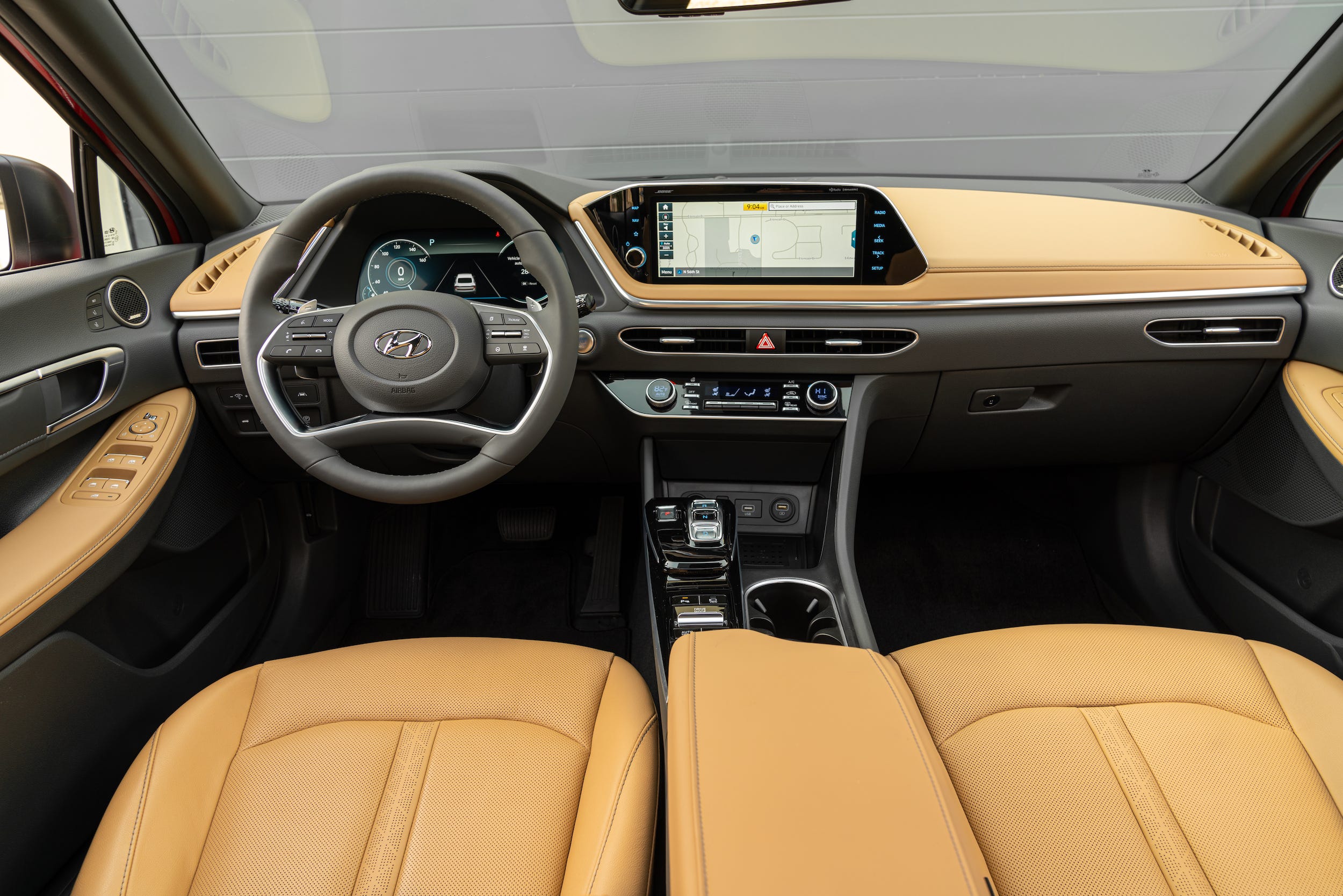
Hyundai
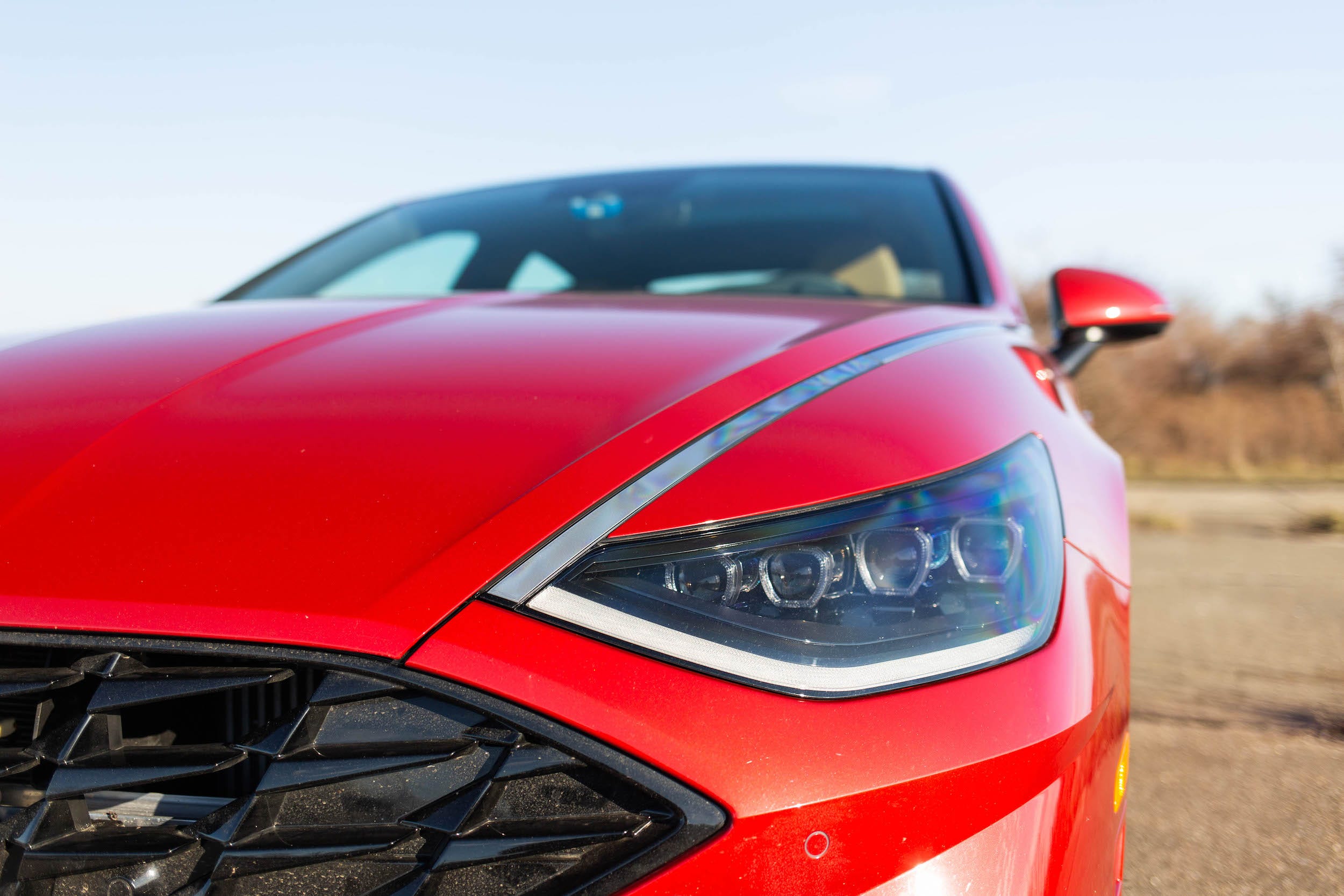
Kristen Lee
